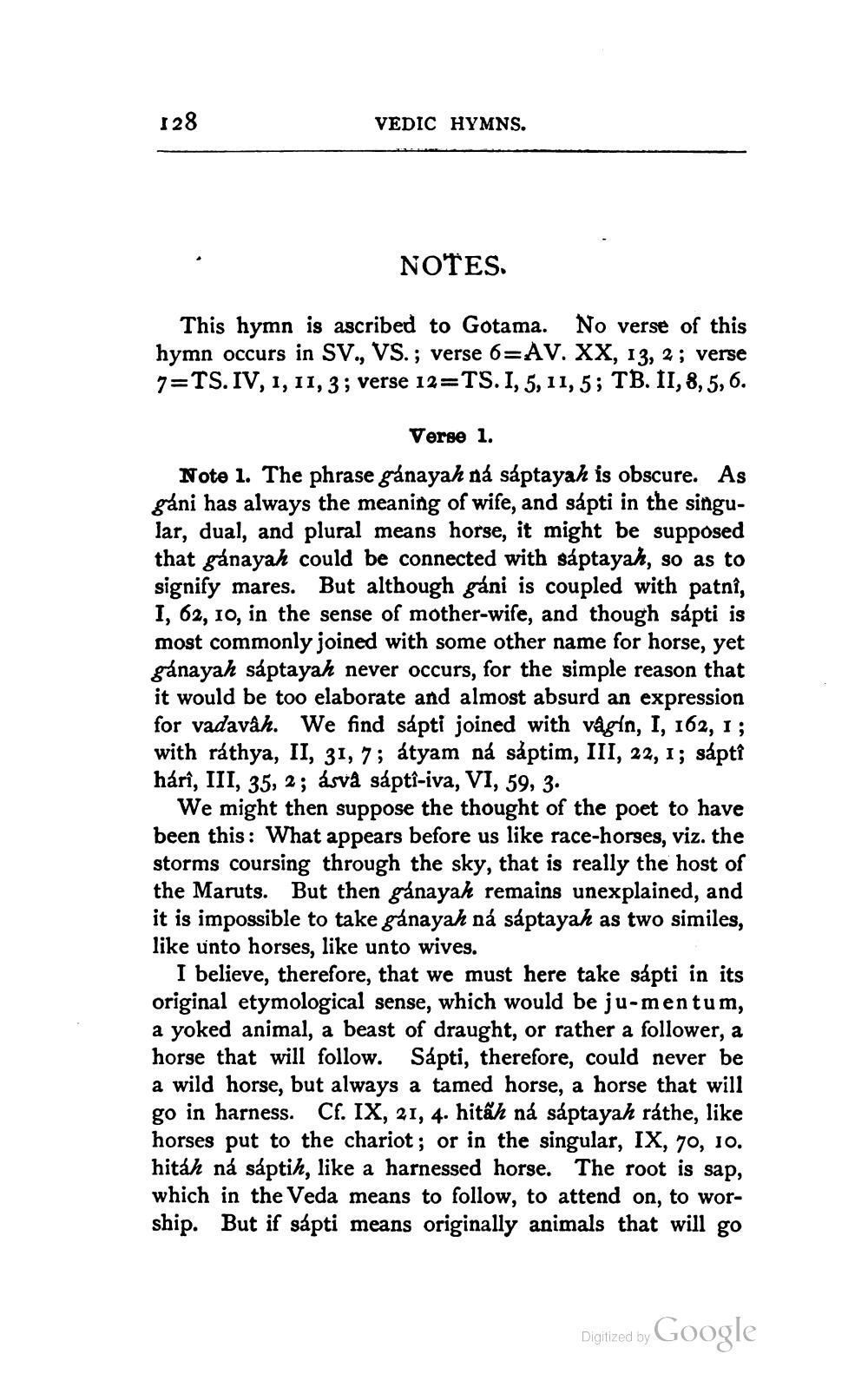________________
128
VEDIC HYMNS.
NOTES
This hymn is ascribed to Gotama. No verse of this hymn occurs in SV., VS.; verse 6=AV. XX, 13, 2; verse 7=TS. IV, 1, 11,3 ; verse 12=TS. I, 5, 11, 5; TB. II, 8,5,6.
Verse 1.
Note 1. The phrase gánayah na saptayah is obscure. As gani has always the meaning of wife, and sápti in the singular, dual, and plural means horse, it might be supposed that gánayah could be connected with sáptayah, so as to signify mares. But although gáni is coupled with patnî, 1, 62, 10, in the sense of mother-wife, and though sápti is most commonly joined with some other name for horse, yet gánayah saptayah never occurs, for the simple reason that it would be too elaborate and almost absurd an expression for vadavâh. We find sápti joined with vagin, I, 162, 1; with ráthya, II, 31, 7; átyam ná sáptim, III, 22, 1; sápti hárî, III, 35, 2; ásvá sáptî-iva, VI, 59, 3.
We might then suppose the thought of the poet to have been this: What appears before us like race-horses, viz. the storms coursing through the sky, that is really the host of the Maruts. But then gánayah remains unexplained, and it is impossible to take gánayah ná sáptayah as two similes, like unto horses, like unto wives.
I believe, therefore, that we must here take sápti in its original etymological sense, which would be ju-mentum, a yoked animal, a beast of draught, or rather a follower, a horse that will follow. Sápti, therefore, could never be a wild horse, but always a tamed horse, a horse that will go in harness. Cf. IX, 21, 4. hitäh ná sáptayah ráthe, like horses put to the chariot; or in the singular, IX, 70, 10. hitáh ná sáptih, like a harnessed horse. The root is sap, which in the Veda means to follow, to attend on, to worship. But if sápti means originally animals that will go
Digitized by
Digitized by Google




